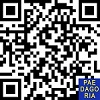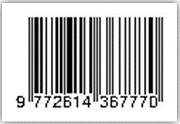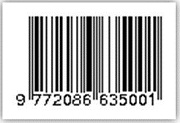ANALISIS KEBUTUHAN PENGEMBANGAN BAHAN AJAR BERBICARA BAHASA JERMAN BERBASIS MOBILE SMARTPHONE DI ERA 4.0
Abstract
Abstrak: Kebutuhan untuk mengembangkan keterampilan berbicara bahasa Jerman menjadi hal yang penting di era revolusi industri saat ini. Keadaan tersebut membuat guru dan praktisi pendidikan mengkaji kembali pengajaran bahasa Jerman yang ada. Penelitian ini bertujuan untuk mengidentifikasi bentuk kebutuhan bahan ajar keterampilan berbicara bahasa Jerman untuk siswa di SMA Merdeka Ponorogo. Jenis penelitian yang digunakan adalah kualitatif dengan pendekatan deskriptif kualitatif. Teknik pengumpulan data yang digunakan adalah wawancara dan kuisioner. Analisis kebutuhan dalam penelitian ini menggunakan teori Briendley, Hutchinson dan Waters, dan teori Nation dan Macalister dengan membagi analisis kebutuhan menjadi kebutuhan objektif dan kebutuhan subjektif. Kebutuhan objektif meliputi identifikasi dan latar belakang siswa, sedangkan kebutuhan subjektif meliputi kebutuhan, kekurangan, dan keinginan. Hasil penelitian menunjukkan bahwa bahan ajar yang selama ini digunakan di SMA Merdeka Ponorogo belum memenuhi kebutuhan siswa dan belum mengarah pada pembelajaran abad 21. Bahan ajar yang diharapkan oleh siswa adalah bahan ajar yang memiliki teks, gambar, animasi, audio, audiovisual serta terdapat latihan berbicara bahasa Jerman mandiri. Siswa juga menginginkan bahan ajar yang mudah dibawa dan diakses kapanpun. Melalui ponsel pintar tersebut diharapkan siswa mampu berlatih berbicara bahasa Jerman secara mandiri. Dengan demikian diperlukan pengembangan bahan ajar berbasis mobile smartphone untuk keterampilan berbicara siswa kelas X SMA Merdeka Ponorogo.
Abstract: The need of developing German speaking skills is important in the current industrial revolution era. This situation causes teachers and education practitioners review the existing German language teaching. This study was aimed to identify the German speaking teaching material needs form at SMA (Senior High School) Merdeka Ponorogo. This type of research was qualitative with a qualitative descriptive approach. Data collection techniques used were interviews and questionnaires. The needs analysis in this study used the theory of Briendley, Hutchinson and Waters, and Nation and Macalister theory by dividing the needs analysis into objective needs and subjective needs. The objective needs included the students' identification and background, while the subjective needs included needs, deficiencies, and desires. The results showed that the teaching materials that have been used at Merdeka Ponorogo Senior High School have not met the needs of students and have not led to 21st century learning. The teaching materials expected by students were teaching materials that have text, images, animations, audio, audiovisual as well as speaking exercises independent German. Students also wanted the teaching materials that will be easy to carry and access anytime. Through this smart phone, students were expected to be able to practice speaking German independently. Thus, the smartphone mobile-based teaching materials development was needed for the speaking skills of class X students, Merdeka Ponorogo Senior High School.Keywords
Full Text:
Download [PDF]References
Agca, R. K., & Özdemir, S. (2013). Foreign Language Vocabulary Learning with Mobile Technologies. Procedia - Social and Behavioral Sciences, 83, 781–785. https://doi.org/10.1016/j.sbspro.2013.06.147
Andrade, M. S. (2016). Curricular Elements for Learner Success – 21st Century Skills. Journal of Education and Training Studies, 4(4), 143–149. Retrieved from http://dx.doi.org/10.11114/jets.v4i8.1743
Ardiansyah, R., Corebima, A. D., & Rohman, F. (2016). Analisis Kebutuhan Pengembangan Bahan Ajar Perubahan Materi Genetik Pada Matakuliah Genetika Di Universitas Negeri Malang. In Seminar Nasional Pendidikan dan Saintek (pp. 749–752). Retrieved from https://publikasiilmiah.ums.ac.id/xmlui/bitstream/handle/11617/8009/111.pdf?sequence=1&isAllowed=y
Bausch, K.-R., Christ, H., Königs, F. G., & Krumm, H.-J. (1999). Die Erforschung von Lehr- und Lernmaterialien im Kontext des Lehrens und Lernens fremder Sprachen. Tübingen: Gunter Narr Verlag Tübingen.
Briendley, J. E. (1995). Learner services: Theory and practice. In In Distansutbildning i itveckling, Rapport nr. 11 (pp. 23–34). Umea, Sweden: University of Umea. Retrieved from http://www.c3l.uni-oldenburg.de/cde/support/readings/brind95.pdf
Depdiknas. (2008). Panduan Pengembangan Bahan Ajar. Jakarta: Departemen Pendidikan Nasional.
Fatmawati, S. (2015). Pengembangan Mobile Learning Berbasis Android Menggunakan Adobe Flash CS6 Pada Mata Pelajaran Bahasa Inggris Untuk Meningkatkan Hasil Belajar Siswa Kelas X TKL SMK Hidayah Semarang. Universitas Negeri Semarang.
Fitria, A., Rasyid, Y., & Lustyantie, N. (2019). a Needs Analysis of Chinese Language Teaching Materials for Students of Business and Management Majors in a Vocational High School. Polyglot: Jurnal Ilmiah, 15(1), 1. https://doi.org/10.19166/pji.v15i1.1086
Hernawati, K. (2011). E-Learning Adaptif Berbasis Karakteristik Peserta Didik. In Seminar Nasional Penelitian, Pendidikan dan Penerapan MIPA (pp. 1–10). Retrieved from http://eprints.uny.ac.id/7174/1/PM-9 - Kuswari Hernawati.pdf
Hutchinson, T., & Waters. (1991). English for spesific purposes. Cambridge, UK: Cambridge University Press.
Kemendikbud. (2017). Model Silabus Mata Pelajaran Sekolah Menengah Atas/Madrasah Aliyah (SMA/MA) - Mata Pelajaran Bahasa Jerman. Jakarta: Kementrian Pendidikan dan Kebudayaan.
Learning, M. L. (2018). Effects of Reading Aloud Tasks through a Mobile Phone on EFL Vocabulary and Reading Comprehension Skills I . INTRODUCTION. Multimedia-Assisted Language Learning, 21(1), 57–76. Retrieved from http://10.0.61.86/mall.2018.21.1.57%0Ahttp://search.ebscohost.com/login.aspx?direct=true&db=asn&AN=129264032&site=ehost-live
Lustyantie, N., & Syaefudin, M. (2017). Implementation of teaching French as a Foreign language based on information and communication technology (ICT) (survey French study program in Indonesia). Man in India, 97(2), 309-316
Marengo [email protected], A., Pagano [email protected], A., & Ladisa [email protected], L. (2016). Mobile Gaming Experience and Co-Design for Kids: Learn German With Mr. Hut. Proceedings of the European Conference on E-Learning, 467–475. Retrieved from http://search.ebscohost.com/login.aspx?direct=true&db=eue&AN=118808365&site=ehost-live&scope=site
Mulyasa. (2019). Implementasi Kurikulum 2013 Revisi - Dalam Era Revolusi Industri 4.0. Jakarta: PT Bumi Aksara.
Nation, I. S. P., & Macalister, J. (2010). Language curriculum design. London, UK: Routledge Taylor & Francis Group.
Novinda, D. A., Budiwati, S. D., & Tambunan, T. D. (2017). Aplikasi Pembelajaran Bahasa Jerman Berbasis Android (Studi Kasus Sma 1 Kajen, Pekalongan). E-Proceeding of Applied Science, 3(2), 843–863.
Rahimi, M., & Miri, S. S. (2014). The Impact of Mobile Dictionary Use on Language Learning. Procedia - Social and Behavioral Sciences, 98, 1469–1474. https://doi.org/10.1016/j.sbspro.2014.03.567
Richards, J. C. (2008). Teaching Listening and Speaking From Theory to Practice. Cambridge: Cambridge University Press.
Steinig, W., & Huneke, H.-W. (2015). Sprachdidaktik Deutsch: Eine Einführung. Berlin: Erich Schmidt Verlag.
Tomlinson, B. (2007). Developing Materials in Language Teaching. Cambridge: Cambridge University Press.
We Are Social. (2019). Population Mobile Use in Indonesia. We Are Social. Retrieved from https://wearesocial.com/?s=population+mobile+use+in+indonesia
DOI: https://doi.org/10.31764/paedagoria.v11i2.2480
Refbacks
- There are currently no refbacks.
Copyright (c) 2020 Universitas Muhammadiyah Mataram

This work is licensed under a Creative Commons Attribution-ShareAlike 4.0 International License.
Paedagoria : Jurnal Kajian, Penelitian dan Pengembangan Kependidikan
Fakultas Keguruan & Ilmu Pendidikan | Universitas Muhammadiyah Mataram.
_______________________________________________
 | Paedagoria : Jurnal Kajian, Penelitian dan Pengembangan Kependidikan |
______________________________________________
CURRENT INDEXING:
EDITORIAL OFFICE:


















